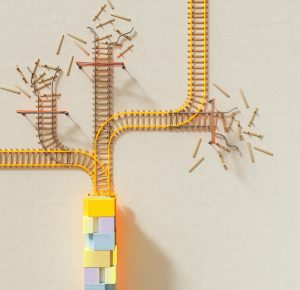The crucial importance of a device’s grounding and shielding
Picture this scenario: you are working on your computer, typing away on an important document, when suddenly, there’s a power surge and your device shuts off. You turn it back on, but to your horror, the document is gone. This can be a frustrating and costly situation that could have been prevented by one crucial element – grounding and shielding.
The Basics: What is Grounding and Shielding?
Before we dive into the importance of grounding and shielding for devices, let’s first understand what they are. Grounding refers to the process of connecting a device to the ground, which is a large conductive surface that can absorb and dissipate excess electrical charge. Shielding, on the other hand, involves the use of conductive materials to surround a device and prevent any external electromagnetic interference (EMI) from disrupting its functioning.
The Importance of Grounding and Shielding for Devices
Ensures Safety
One of the key reasons why grounding and shielding are crucial for devices is safety. When a device is grounded, it helps to redirect any excess electrical charge away from the device and into the ground, providing a safer environment for both the device and its users. This is particularly important for devices that use high voltage or produce a lot of heat, such as computers and appliances.
Prevents Damage from Power Surges
As mentioned earlier, power surges can be disastrous for devices. This sudden spike in voltage can cause irreparable damage to the device’s internal components, leading to malfunctioning or complete failure. However, if the device is properly grounded, the excess electrical charge will be redirected, preventing any potential damage.
Reduces Noise and Interference
In today’s digital age, most devices are constantly surrounded by various sources of electromagnetic interference. This interference can impact their functioning, resulting in errors, glitches, and poor performance. Shielding helps to minimize this interference, ensuring that the device works at its optimal level without any disruptions.
Complies with Safety Regulations
Most countries have strict safety regulations that require devices to be grounded and shielded. This is to ensure that the devices do not pose a threat to the users, as well as to prevent any potential risks such as electrical fires. Complying with these regulations not only ensures safety but also avoids any legal consequences.
The Consequences of Neglecting Grounding and Shielding
Now that we understand the importance of grounding and shielding for devices, it’s crucial to highlight the consequences of neglecting them. Without proper grounding and shielding, devices are at risk of malfunctioning, damaging other equipment, and even causing harm to individuals in the vicinity.
Poor Performance and Malfunctioning
Devices that are not properly grounded and shielded are prone to poor performance and malfunctioning. This is because they are susceptible to various forms of interference, which can disrupt their functioning. This can result in errors, slow performance, and frequent breakdowns, all of which can be frustrating and costly for device owners.
Damaging Other Equipment
In some cases, a device without proper grounding and shielding can even cause damage to other connected equipment. For instance, in an office or home setup, if one device is not properly grounded, it can cause a surge that damages other devices connected to the same power source. This can be a costly and inconvenient situation that could have been avoided with proper grounding and shielding.
Risk to Human Life
Perhaps the most alarming consequence of neglecting grounding and shielding is the risk to human life. Without proper grounding, devices can pose a threat of electrical shock to anyone who comes in contact with them. In certain cases, this can even result in electrocution, which can be fatal. This risk is not worth taking, and proper grounding and shielding should be a top priority for all device owners.
In conclusion
Grounding and shielding may seem like technical aspects that can easily be overlooked, but their importance cannot be stressed enough. They not only ensure safety but also help devices to function at their optimal level, preventing damage and costly consequences. Therefore, it’s essential for device owners to prioritize proper grounding and shielding to protect their investment, ensure safety, and comply with regulations. As the saying goes, prevention is better than cure, and this certainly holds true for grounding and shielding.










